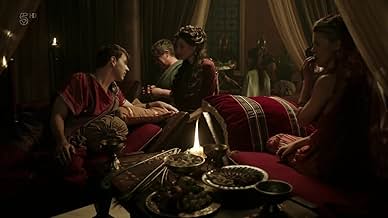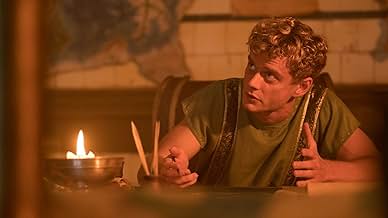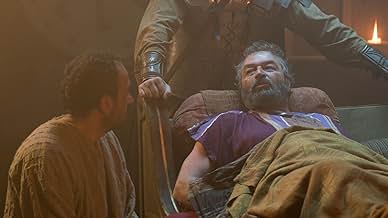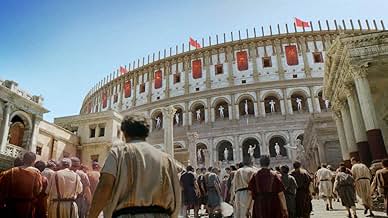Adicionar um enredo no seu idiomaHistorian Bettany Hughes selects eight pivotal days that defined the Roman Empire and its establishment as the world's first superpower.Historian Bettany Hughes selects eight pivotal days that defined the Roman Empire and its establishment as the world's first superpower.Historian Bettany Hughes selects eight pivotal days that defined the Roman Empire and its establishment as the world's first superpower.
Explorar episódios
Avaliações em destaque
I hope this series gets recognition for excellence that it deserves. This was a fascinating journey through time and history unlike any television experience that I can remember. I found myself eagerly awaiting the arrival of the dreaded Monday for the arrival of the next installment. The host was engaging I feel truly captured the essence of each tale. Also, the tales themselves were great, both riveting and interesting. I love how the actual locations and artifacts were incorporated into each episode to make immersion into to time and place complete. Bravo to Smithsonian channel and to all of those involved.
Keeps reminding of how "violent", corrupted and degenerated roman society was, apparently forgetting that you cannot apply today's metric to a civilization of 2k years ago. Why bother mentioning Rome's contribution to civilize Europe, between wn one massacre and the other?
Bettany Hughes is very engaging and she really nailed it unpacking the history of Rome and Roman society.
I found the whole series bias against Rome, but the Caesar one irritated me the most. She seems to misunderstand what the Roman Republic was: An oligarchy. The Senators weren't elected, they were pulled from the aristocracy. There was no representation of the people until the Senate was forced to give the plebs representation in the form of tribunes only because they needed the plebs help in a war. And the Senate literally lynched the first couple of tribunes who actually moved to really help the plebeians and heal some of the empires problems. So Caesar was fighting fire with fire only after many many popularii and tribunes were murdered by an aristocratic leader named Sulla. He literally marched an army in and killed every popularii he could which was the first time that was ever done. The show drastically mistakes the Republic and how they viewed common people and even their middle class. She also drastically misrepresents the Germanic and Celtic people of that time. They were brutal and frequently attacked Rome. The Cimbric War is a prime example of German civility. And the Celts invaded constantly and even managed to sack Rome once.
This woman describes Romans as misogynist, following the today's trend. This is false: Rome's women were, in a lot of cases, even more powerful than men.
The plot is clearly made just to catch the audience, sacrificing the truth.
The plot is clearly made just to catch the audience, sacrificing the truth.
Principais escolhas
Faça login para avaliar e ver a lista de recomendações personalizadas
- How many seasons does Eight Days That Made Rome have?Fornecido pela Alexa
Detalhes
- Data de lançamento
- País de origem
- Central de atendimento oficial
- Idioma
- Também conhecido como
- 8 Days That Made Rome
- Locações de filme
- Empresa de produção
- Consulte mais créditos da empresa na IMDbPro
Contribua para esta página
Sugerir uma alteração ou adicionar conteúdo ausente

Principal brecha
By what name was Eight Days That Made Rome (2017) officially released in India in English?
Responda






























